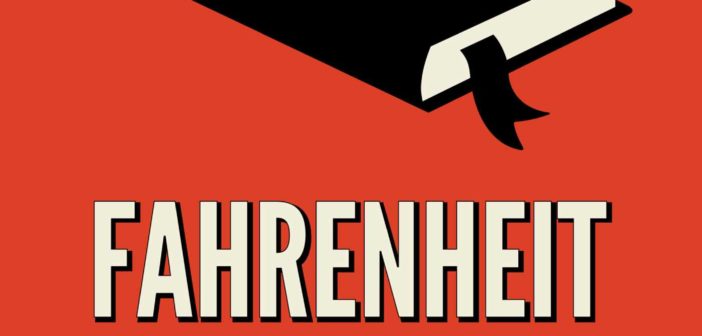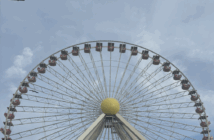By: Alora E. Peters, Arts and Culture Editor
Dystopias—the genre of literature that thrives among unpublished teenage fanfiction stories, yet stands the test of time among the greatest works of classical literature. The genre that is more frightening than any horror story and more suspenseful than any action thriller. The genre that paints a picture of society just as precise and informative as the best of historical fiction, or is just as fantastic and inventive as the best of science fiction.
Dystopian fiction speaks to readers in ways that many other genres do not, and have, unsurprisingly, remained one of the most popular and compelling forms of literature to date. Dystopian literature examines the antithesis of a utopia, a perfect society, and presents the picture of a society gone completely wrong.
Given that the month of October is both Spooky Season and the month leading up to the general elections, what better time to enjoy some chilling novels about corrupted societies that may be headed our way in the not-too-distant future? Here are just a few of our favorites.
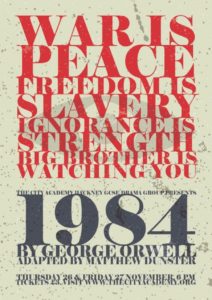
1984
George Orwell’s haunting exploration of a totalitarian government, published in 1949, has remained one of the most influential and popular dystopian novels to date. “1984” imagines a future where citizens are kept under the firm control of “the Party” and its all-seeing leader, Big Brother, through fear, misinformation, subversive political ideologies, and the looming presence of the Thought Police.
Orwell’s exploration of propaganda and language as tools for controlling a society is one of the most memorable aspects of “1984.” The lead character, Winston Smith, is employed in the Ministry of Truth, a branch of government that deals with the writing of history, literature, and the news—or rather, cleverly disguised propaganda. Whenever the Party has a change in economic or wartime policy, whenever a public figure says something that is unaligned with the government, or whenever a word is deemed “dangerous” to the ideologies of the Thought Police, the Ministry of Truth will alter every preservable document in the country to successfully delete the unapproved policy, person, or word from living memory.
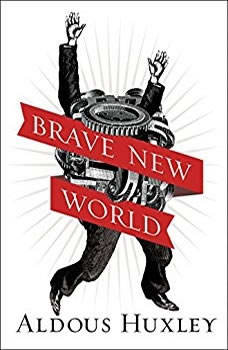
Brave New World
In 1932, Aldous Huxley introduced a unique dystopian society where pleasure—not pain—keeps citizens in line. In “Brave New World,” massive strides have been made in genetic technology, and control of the populace has been perfected to a science. In Huxley’s dystopian world, human beings are grown in a lab and conditioned from the very first moments of their existence through adulthood to assume and enjoy a particular ranking and role in society that has been prearranged by the government.
The people of “Brave New World” are further manipulated into obeying the will of their superiors by being overwhelmed with distractions. The people spend their time watching entertaining shows, having numerous sexual affairs, and ingesting food and drink laced with an addictive, happiness-inducing drug; with such an influx of diversions, these citizens never stop to think or ask questions about the lives they are really living.
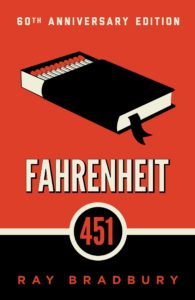
Fahrenheit 451
“Fahrenheit 451,” a 1953 novel by Ray Bradbury, is the story of a dystopian world where books have become outlawed. The hero of the story, Guy Montag, is a “fireman” – a government official whose duty is to find and burn books; conversely, citizens who are in possession of these illegal items are branded as criminals and outlaws.
Despite the fact that books have become a controversial and unpopular source of enjoyment, there is no shortage of entertainment in this futuristic society. High-tech television screens and earbuds bring film, radio, music, news, and other popular genres to citizens and the media personalities of these programs have become so important that they are considered to be more lovable than family.
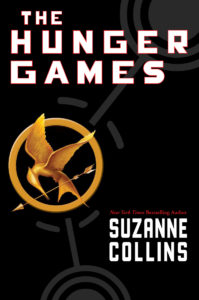
The Hunger Games Trilogy
With the first book published in 2008, “The Hunger Games,” by Suzanne Collins, quickly became a worldwide phenomenon and a bestseller among young adult fiction. The dystopian themes of the trilogy, however, are anything but juvenile—”The Hunger Games” depicts a future in which the continent of North America has been reimagined as the nation of Panem, where all government and economic power is held in the hands of the Capitol.
The Capitol controls the outlying 12 Districts, each of which provide an annual quotient of a different agricultural or material resource to be redistributed by the Capitol throughout the country. Similar to the Party of “1984,” the Capitol keeps the Districts under its authority through propaganda and fear by hosting the annual Hunger Games—a televised game show in which District children are forced to fight to the death—and by using the example of an obliterated 13th District as an example of what happens when anyone decides to step out of line.
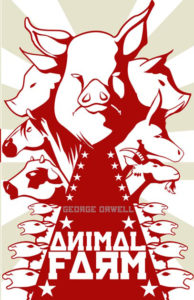
Animal Farm
Another Orwellian classic, the 1945 novella “Animal Farm” is a satirical novel that explored the birth of a Communist nation through the eyes of talking farm animals. The hungry and overworked pigs, horses, chickens, cows, and sheep of the fictional Manor Farm decide to rebel against their human master after having suffered enough. The revolution is successful: the victorious animals rename their home “Animal Farm” and resolve to create a utopian paradise where all animals will be treated equally.
However, these ideals and slogans are quickly highjacked by a group of scheming pigs who use the energy and zeal of the other revolutionary animals to seize power in the animal community. The novella was roughly based off of the historical Communist Revolution in Russia.
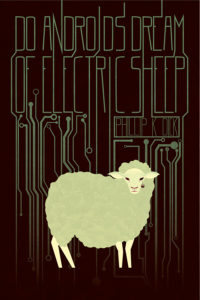
Do Androids Dream of Electric Sheep?
This 1968 novel by Phillip K. Dick depicts a dystopian society where nuclear conflict has created an apocalyptic planet Earth. In “Do Androids Dream of Electric Sheep?” many people are bribed to immigrate to off-world colonies with the lure of a less-polluted atmosphere and the gift of an android servant. A group of androids escape, however, and attempt to live normal lives disguised as normal humans.
Meanwhile, back on earth, owning a living animal has become a status symbol, since so many animals were exterminated in the warfare. Aside from taking care of their pets, everyday citizens will carefully regulate their emotions and feelings using a device called a “Mood Organ.” These technological advancements lead many of the characters in the novel to ponder the difference between human beings and the artificial androids that serve them.

